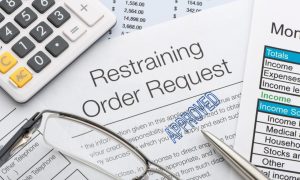Navigating the complex world of the criminal justice system can be daunting. One common point of confusion is the distinction between being arrested and being charged. While these terms are often used interchangeably in everyday conversation, they represent very different stages in the legal process. This article delves deep into the nuances of arrests and charges, offering clarity and comprehensive information.
What Is an Arrest?
An arrest is a procedure where a law enforcement officer takes a person into custody, typically because they are suspected of committing a crime. This action significantly restricts the individual’s freedom of movement. According to the Fourth Amendment of the United States Constitution, arrests must be supported by probable cause.
The Process of an Arrest
- Probable Cause: Before making an arrest, a police officer must have probable cause. This means there must be sufficient evidence to believe that the person has committed a crime.
- Issuance of an Arrest Warrant: In some cases, an arrest warrant is required. A judge issues this warrant based on the evidence presented by law enforcement.
- The Actual Arrest: The police officer will inform the individual that they are under arrest and typically state the reason for the arrest. The person is then taken into custody.
- Booking: After the arrest, the individual goes through the booking process, which includes taking fingerprints, photographs, and recording personal information.
What to Do When You Are Arrested

Being arrested can be a frightening experience. Here’s what you should do if you find yourself in this situation:
- Stay Calm and Comply: It’s essential to remain calm and comply with the officer’s instructions. Resisting arrest can lead to additional charges.
- Invoke Your Rights: You have the right to remain silent and the right to an attorney. Clearly state that you wish to exercise these rights.
- Do Not Volunteer Information: Avoid making statements or answering questions without your attorney present. Anything you say can be used against you in court.
- Contact an Attorney: As soon as possible, contact a criminal defense attorney to represent you.
What Is a Charge?
A charge is a formal accusation made by a governmental authority asserting that somebody has committed a crime. Charges are typically filed by a prosecutor following an arrest or investigation.
The Process of Being Charged
- Investigation: Law enforcement conducts an investigation to gather evidence. This may occur before or after an arrest.
- Decision to Charge: The prosecutor reviews the evidence and determines whether there is enough to file formal charges. This decision is based on the likelihood of securing a conviction.
- Filing of Charges: If the prosecutor decides to proceed, formal charges are filed in court. The accused is then notified of the charges.
What to Do When You Are Charged
Being formally charged with a crime is a serious matter. Here’s what you should do:
- Hire a Criminal Defense Attorney: An experienced attorney can help you navigate the legal process and build a defense.
- Understand the Charges: Make sure you fully understand the charges against you and the potential consequences.
- Prepare for Court: Work with your attorney to prepare for court appearances and build your defense strategy.
- Follow Legal Advice: Follow the advice of your attorney closely and attend all scheduled court appearances.
Will I Know If The Police Have Charged Me?
Yes, you will be informed if the police have charged you with a crime. The notification process typically involves a formal document called an indictment or information, which outlines the charges and the evidence supporting them.
Notification Process
- Arraignment: After charges are filed, you will be called to court for an arraignment. During this proceeding, the charges will be read to you, and you will be asked to enter a plea.
- Summons: In some cases, you may receive a summons, which is a legal document notifying you of the charges and instructing you to appear in court.
- Direct Contact: Law enforcement or court officials may contact you directly to inform you of the charges and court dates.
What Is a Conviction?
A conviction occurs when a person is found guilty of a crime by a court of law. This can happen through a guilty plea, a plea bargain, or a trial verdict.
Consequences of a Conviction
- Sentencing: Following a conviction, the defendant is sentenced. This can include jail or prison time, fines, community service, probation, or other penalties.
- Criminal Record: A conviction results in a criminal record, which can have long-term consequences on employment, housing, and other areas of life.
- Appeals: The convicted person has the right to appeal the conviction, seeking a review of the trial process and verdict.
Do Arrest Records Show Up on a Background Check?
Arrest records can show up on background checks, but it depends on the jurisdiction and the type of background check being conducted.
Types of Background Checks
- Standard Employment Checks: These typically show convictions rather than arrests. Some states have laws that restrict the use of arrest records in employment decisions.
- Enhanced Background Checks: For positions that require higher security or trust, such as government jobs or positions involving children, both arrests and convictions may be included.
- Public Records: Arrest records are generally public records and can be accessed through various means, including online databases.
Impact on Employment
- Legal Restrictions: Some states have laws protecting job applicants from discrimination based on arrest records.
- Disclosure: You may be required to disclose arrests on job applications, depending on the nature of the job and the laws in your state.
What Are My Rights After Arrest?

Understanding your rights after an arrest is crucial to protecting yourself legally. Here are some key rights to be aware of:
The Right to Be Informed of Your Rights
Upon arrest, you must be informed of your Miranda rights, which include:
- Right to Remain Silent: You have the right to remain silent and not incriminate yourself.
- Right to an Attorney: You have the right to consult with an attorney and have them present during questioning.
Right to Remain Silent
Exercising your right to remain silent is vital. You are not obliged to answer any questions without your attorney present.
Right to Legal Representation
You have the right to an attorney. If you cannot afford one, the court will appoint a public defender to represent you.
Right to a Fair Trial
You are entitled to a fair trial, which includes the right to:
- A Public Trial: Your trial must be open to the public.
- An Impartial Jury: You have the right to be judged by an impartial jury of your peers.
- Confront Witnesses: You can confront and cross-examine witnesses who testify against you.
Conclusion
Understanding the distinction between being arrested and being charged is fundamental to navigating the criminal justice system. While an arrest is an initial step based on probable cause, a charge is a formal accusation that follows an investigation. Knowing your rights and the appropriate actions to take in each scenario can significantly impact the outcome of your case. Always consult with a qualified attorney to guide you through the legal process and protect your rights.
ALSO READ: Classes to Take in High School to Become a Lawyer
FAQs
Being detained is a temporary hold by law enforcement for questioning, while an arrest is a formal procedure involving taking someone into custody based on probable cause.
Yes, you can be arrested based on probable cause, but charges may not immediately follow. The prosecutor decides whether to file formal charges after reviewing the evidence.
The duration varies by jurisdiction, but generally, you can be held for up to 48 hours before charges must be filed or you must be released.
Contact a criminal defense attorney immediately. Your attorney can evaluate your case and determine if your rights were violated and if there are grounds for legal action.
Yes, charges can be dropped if the prosecutor decides there is insufficient evidence to proceed, or if new evidence emerges that exonerates you.
Missing a court date can result in a bench warrant for your arrest and additional charges. It’s crucial to attend all scheduled court appearances.




